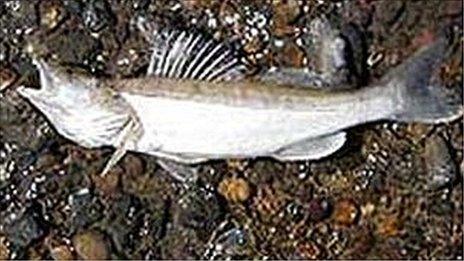London's 'super sewer' gets the go ahead
- Published
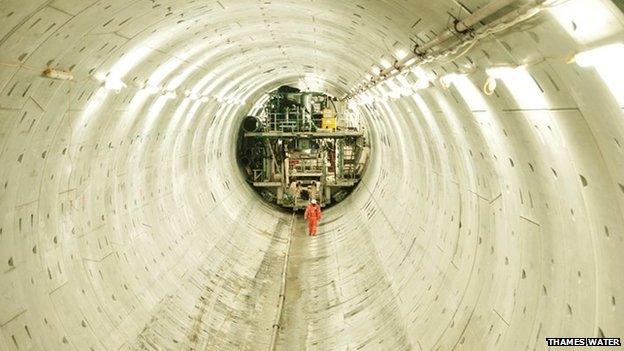
The Thames Tideway tunnel will be 15 miles long and cost about £4.2bn
Plans for a £4.2bn "super sewer" under London have been given the go-ahead by the government.
Work on the controversial 15-mile (25km) Thames Tideway Tunnel, which has been proposed by Thames Water, will start in 2016 and finish in 2023.
The company says it is needed because the city's current Victorian drainage system cannot cope.
Opponents say the work will cause major disruption near tunnelling sites and insist there are better options.
The tunnel will run from Acton Storm Tanks in west London to the Abbey Mills pumping station, in east London, and have a storage capacity of 1.25 million cubic metres.
It would eventually add up to £80 a year to Thames Water customers' bills.
Communities Secretary Eric Pickles said, external: "This is a challenging infrastructure project, but it is clear that the Thames Tunnel will help modernise London's ageing Victorian sewerage system, and make the River Thames cleaner and safer."
Thames Water has said the current systems overflow on a weekly basis, flushing 39 million tonnes of raw sewage straight into the Thames each year. The company said in 2013, 55 million tonnes of sewage polluted the river.
"If the tunnel had been in operation last year, it would have captured 97% of the sewage that poured into London's river," Thames Water's Andy Mitchell said.
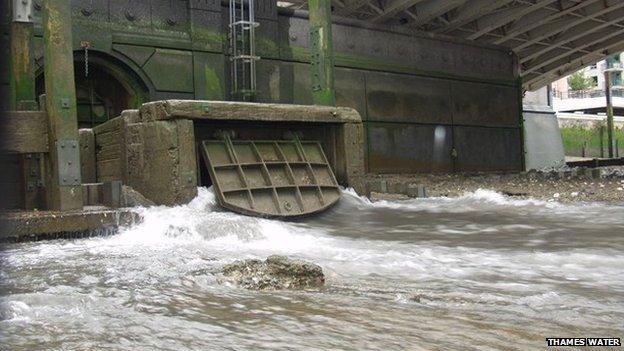
About 39 million tonnes of raw sewage flow straight into straight into the Thames every year
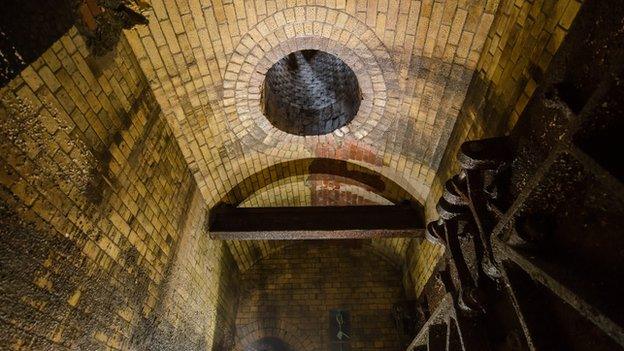
The Victorian sewage system under London is being deluged, Thames Water said
"Hardly a week goes by when untreated sewage isn't pouring in to London's river and we are pleased that we can now start to tackle this archaic problem.
"This is a huge project but it's a huge problem, and we can now get on with tackling it."
But several London councils and environmental groups have criticised the project.
Southwark Council leader Peter John described it as a "ludicrous and evil decision".
And Christian Sarrasin, from the environmental group, Clean Thames Now and Always, said much of the building work would take place around the clock, causing "mayhem" for people who lived near the tunnelling sites.
"We've concreted over all the cities and that's why we've got this issue with the Thames Tunnel," he said.
He said there were cheaper, greener alternatives to it that involved preventing stormwater flooding into the sewers in the first place, such as green roofs and porous asphalt roads that soaked up or stored water.
- Published12 September 2013
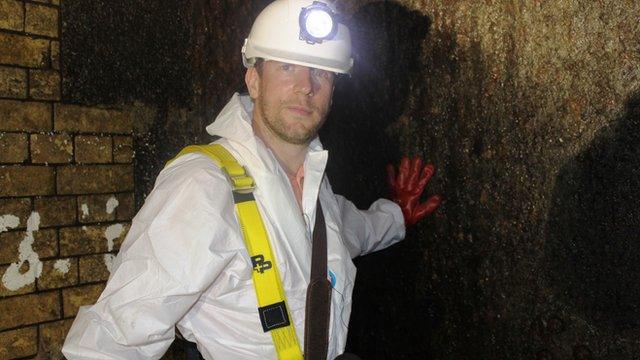
- Published12 September 2013
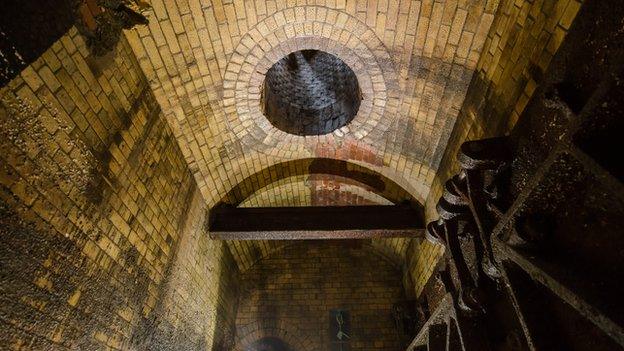
- Published31 October 2011
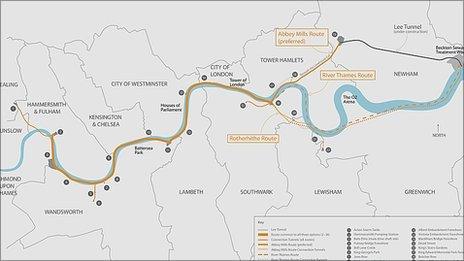
- Published27 October 2011

- Published29 June 2011
